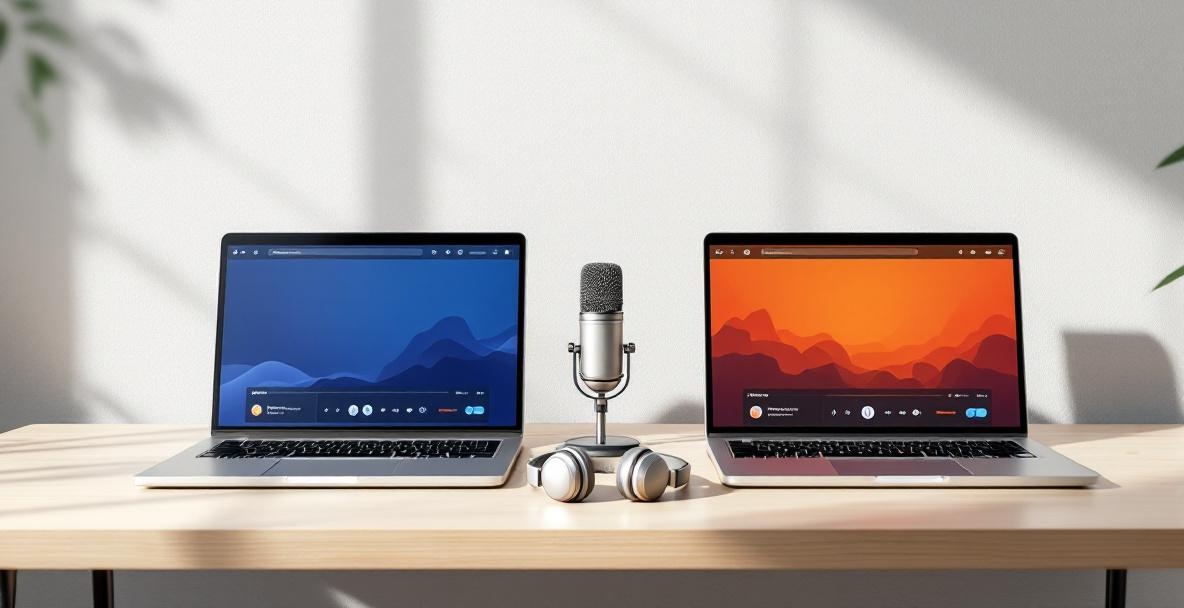Picking the right podcast host is a big deal. It can make your journey smooth or turn it into a headache that slows your growth. With so many options around, podcasters often struggle to decide where to invest time and money. Your host influences everything from show distribution and listener analytics to monetization opportunities and overall listener experience, so getting it right matters.
Getting Started

Why a Good Podcast Host is a Game Changer
Your podcast host is where it all happens. It stores your audio files and makes sure your episodes reach platforms and listeners. A poor choice might limit your audience, restrict how you earn, or surprise you with extra charges later. Many podcasters choose a host just because the price seems right, only to bump into issues with storage or bandwidth as their show grows. Sometimes, one friendly recommendation leads to a decision that doesn't match your goals. Taking the time to study your options could save you a world of hassle down the road.
What's Podcast Hosting All About?

What Podcast Hosting Means
Podcast hosting is a service that safely stores your audio files and builds an RSS feed to share your episodes with platforms like Apple Podcasts, Spotify, and Google Podcasts. Think of it as the hidden engine that keeps your show running smoothly. Unlike regular website hosting, these services are designed specifically for big audio files and strong bandwidth, making it possible to serve your episodes even when thousands tune in.
When you sign up with a host, they handle the tricky parts of file storage, speedy delivery, and distribution across multiple channels. This lets you focus on making great episodes rather than wrestling with tech issues. Most services offer a user-friendly publishing tool, helpful analytics, and management features that keep you on top of your podcast presence. Without a dedicated hosting service, you might be stuck juggling file storage, bandwidth limits, and creating your own RSS feeds-a lot of extra work for any creator.
Must-Have Features to Watch Out For
When shopping for a podcast host, look closely at the features they offer because these can change your whole experience. One key element is the storage limit and upload quota. This tells you how many episodes you can publish each month and how long your previous shows stay available. Some hosts let you upload as much as you want, while others might charge extra if you go over your limit.
Next, check the analytics. Some platforms only provide a total download count, but the better ones offer clear details like listener demographics, where listeners drop off, and which platforms they use most. These insights can help you refine your content and reach. Having robust listener analytics gives you an edge in planning exciting new episodes.
Another thing to consider is how the service handles distribution. The best hosts let you push your episodes with just a click to all the major directories and streaming services. Some even offer extras like automatic social media posts or easy website embeds that make promoting your show less of a chore. These built-in tools can turn promotion into a smoother process, letting you grow your audience more easily.
Lastly, if making money from your podcast is part of your plan, review the monetization options. Some services include features for sponsorship marketplaces, dynamic ad tools, or ways for listeners to support your show directly. Choosing a host with strong monetization features might give you a real advantage as your audience grows.
A Side-by-Side Look at Top Podcast Hosts

Buzzsprout vs. Libsyn – A Friendly Showdown
Buzzsprout and Libsyn take very different routes when it comes to podcast hosting, each with its own loyal fans. Buzzsprout stands out for its easy-to-use design and modern look, making it a hit with newcomers. Its clear analytics dashboard and handy tools for adding episode chapters or creating social media clips take much of the fuss out of producing a show.
Libsyn, having been around since 2004, offers rock-solid reliability and room to grow with your podcast ambitions. Even if its interface might feel a bit old-school next to newer services, the advanced distribution and monetization tools have kept it popular among experienced podcasters. Pricing also plays a role here; Buzzsprout uses a monthly upload limit model, while Libsyn charges based on the storage you use.
If you’re just starting out and value simplicity and fresh visuals, Buzzsprout might be more appealing. But if you already have lots of episodes and need a cost-effective solution as you grow, Libsyn could be a smarter choice. Both deliver reliable performance, yet they cater to different podcasting styles.
Podbean vs. Anchor – Which One Suits You?
Podbean and Anchor show two very different approaches in the podcast hosting world. Podbean follows a familiar subscription model with clear, tiered pricing that matches features and upload limits. Its platform is friendly and packed with tools, including a strong mobile app for recording and publishing on the go. Plus, Podbean offers diverse ways to earn money through ads, premium content, or listener donations.
Anchor, now part of Spotify, shook everything up with a completely free hosting service. While its no-cost option means you can start without spending money, it also brings limitations. Although you get unlimited hosting and basic analytics for free, monetization options depend on their ad program, and some podcasters worry about content control given Anchor’s Spotify ties.
Your decision here really comes down to your long-term vision. If you plan to build a steady revenue stream and want more control over your show, Podbean may be the way to go. For creators just testing the waters or trying to avoid upfront fees, Anchor offers a very appealing start. Your future goals should guide your choice in this matchup.
Transistor vs. Simplecast – Tools for the Pro Podcaster
Transistor and Simplecast cater to podcasters with professional goals and often multiple shows. Both offer powerful solutions for managing content and working with a team. Transistor stands out with its unlimited upload model, where pricing is based on total downloads rather than a strict monthly time limit. This method works great if you run several shows or expect steady growth.
Simplecast shines with top-notch analytics and easy sharing features. Its unique "recast" option makes it simple to pull shareable clips, while its detailed analytics help you understand your audience even better. Both platforms also offer private podcasting options, which are perfect if you need to share content internally or offer premium episodes in a controlled setting.
When it comes to managing a team, the differences are clear. Transistor provides solid options to set various access levels for contributors, while Simplecast offers flexible API access for custom integrations. These tools come with higher monthly fees, but they are designed for podcasters who need professional-grade features and support.
Things to Consider When Picking Your Podcast Host

Money Matters and Pricing Plans
Cost is a big deal when it comes to podcast hosting, and the plans can vary widely. Every host uses different pricing rules, such as monthly upload limits, storage space, bandwidth, and even listener counts. You might see a low starting price that increases quickly once your show takes off. Free options like Anchor let you start without spending money, but they might limit your ability to monetize or add unwanted platform branding. For many independent podcasters, services in the $12 to $30 range per month work fine, while premium plans with extra features often run in the $50 to $100 range or higher.
Make sure to look at the whole package rather than just the sticker price. Sometimes a higher-cost service includes tools and features that you would have to pay for separately elsewhere. It helps to map out your expected growth over the year and choose a plan that fits that vision. According to comprehensive market analysis, the podcast hosting market is set for more competitive pricing in the near future, so your initial choice becomes even more important.
How Easy It Is to Use and the Support You Receive
How a podcast host works on your daily routine can really affect both your productivity and stress levels. Some platforms feature intuitive dashboards and clear step-by-step guides that are perfect if you’re not a tech expert. Others pack in more features, which might mean a steeper learning curve. Finding a platform with the right user experience can save you time and frustration.
Also, think about the support you get when technical hiccups arise. Some companies offer live chat or phone help, while others might only reply to emails after a day or more. Good documentation and an active community forum can be lifesavers if you run into problems. The way each host lets you schedule and publish episodes can also make a difference, as even small time savings add up over many episodes. With podcasts growing fast, having a smooth workflow is more important than ever.
Wrapping It Up
What to Do Next
At the end of the day, choosing the right podcast host means matching a service with your unique needs and long-term goals. Whether you're podcasting for fun, building a brand, or setting up a professional media venture, your choice should reflect what matters most to you. Try out a few platforms with free trials and see which one fits best with how you work and how you want to connect with your audience.
Ready to take your podcast growth to the next level? At Castee, we offer a complete podcast marketing solution that works with any hosting service. Our tools help you boost your show’s visibility, engage more listeners, and track your success every step of the way. Visit us today to learn how our SEO optimization, growth analytics, and branding capabilities can help you build a thriving podcast community, no matter where your audio is hosted.
Leave a Reply